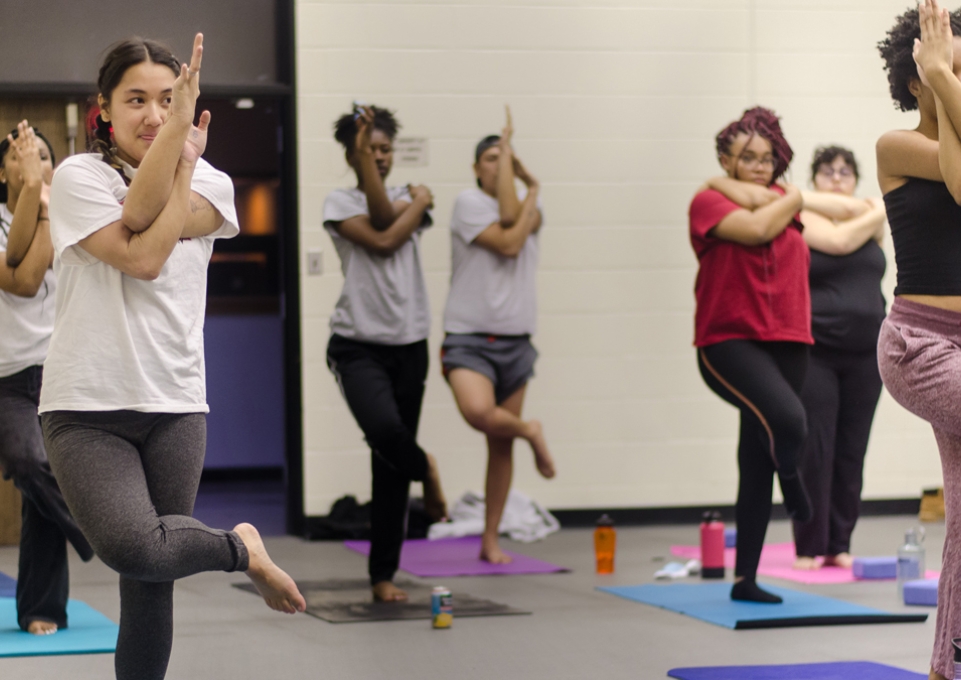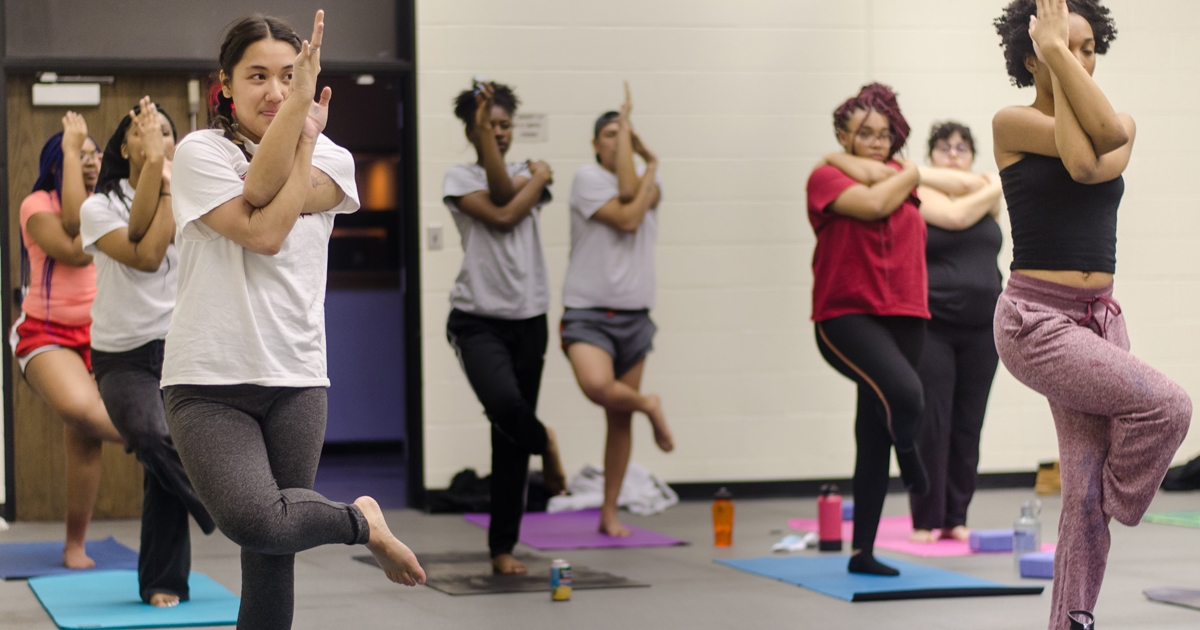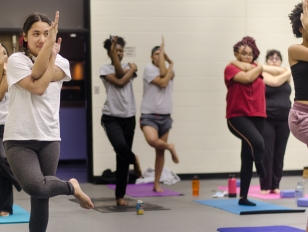
College life can be stressful for any student, especially for first-year students, who must learn to balance a challenging course load with their newfound sense of independence: paying bills, cooking, and keeping up with laundry, just for starters. And many students have work and family obligations, as well.
Leaving home, which is generally a supportive and controlled environment, to come to college, where there is relative autonomy, can be a difficult transition, said Jack Mack, assistant clinical manager of the Buffalo State College Counseling Center.
“While most students transition well, we all need to ask for help at one time or another,” he said. “It’s really helpful to have a sense of purpose and community, which I think is a goal of everyone who works at Buffalo State. We should all be sending the message that stress is normal, and so is asking for help.”
“We know that to help our students reach their personal and professional goals, we need to provide the support needed to take care of their mental health and emotional well-being,” said Charlene J. Vetter, clinical manager of the Counseling Center, which is located on the second floor of the Weigel Wellness Center. “Our goal is to ensure that students receive quality care and recommendations tailored to their individual needs.”
Buffalo State offers a variety of programs and opportunities for students who are suffering from the stresses of modern-day life. The Counseling Center offers mental health screenings, individual and group counseling sessions, educational outreach programming, crisis assessments and interventions, and referrals to specialized services, both on and off campus, Mack said. From counseling to wellness programs like yoga and Tai Chi classes, Buffalo State works to stay on the cutting edge of treatment strategies, providing the best environment possible for students. All services are free and Counseling Center services are confidential.
Students come to the Counseling Center with the same concerns any college counseling center would see, Mack said. They include anxiety, depression, relationship problems, academic and personal stress, trauma, alcohol and drug use, and diversity and identity conflicts.
“Over the course of the year, we see everything from students who are just stressed out and need support with adjustment to students struggling with serious mental health issues, like depression, suicidality, or addiction,” he said.
Mack said a variety of campus staff members, including residential assistants and orientation ambassadors, are trained in a suicide prevention program known as QPR, which stands for Question. Persuade. Refer. Some groups on campus, like student organizations, will ask for specific training on things like stress management, as well.
The Counseling Center uses a model called “Stepped Care,” Mack said. The model is designed to make it as easy as possible for students to speak with counselors about what’s going on in their lives, and develop a plan that will be the most useful and helpful to them. Through the Stepped Care model, students are offered the most effective but least intrusive intervention first. Care is then “stepped up,” based on what the student needs.
Not every student wants or needs the same thing, Mack said. Some may need just one session, while others may need regular support throughout the semester. Still others may not know what they need, and that’s normal.
“Our staff are all generalists with years of experience, and if we aren’t the best fit to support a student, we help them get linked up with someone who is,” Mack said.
Along with counseling, students can participate in other activities and groups that promote mental well-being. Yoga classes run three times a week throughout the semester in Buckham hall, and Tai Chi classes are held on Sunday mornings in Rockwell Hall. Therapy dog workshops, featuring dogs from Horizon Health Services, are also available throughout the semester. Hands-on workshops also address study skills; trauma, grief, and loss; stress reduction; and the importance of sleep. Students also rely on support from peers, families, professors, other staff, mentors, advisers, administrators, and social organizations, Mack said.
“The Counseling Center is only the hub of mental health services at Buffalo State,” Mack said. “Creating a healthy environment takes everyone in our community to support and help each other.”
Photos by Nick Butler, photography student assistant.



